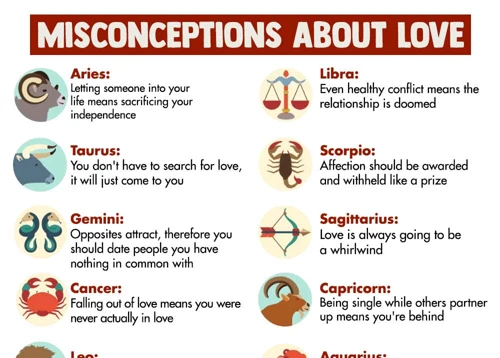When it comes to relationships, many people turn to astrology to gain insight into their compatibility with others. However, there are often misconceptions surrounding zodiac sign compatibility that can lead to misunderstandings and false beliefs. In this article, we will dive deep into the world of zodiac sign compatibility and debunk some of the most common misconceptions. By understanding the true factors that affect compatibility, you’ll be equipped with valuable knowledge that can help you navigate your relationships with a clearer perspective. So, let’s unveil the truth behind the curtain of zodiac sign compatibility and discover the real keys to finding a harmonious connection with others.
What is Zodiac Sign Compatibility?
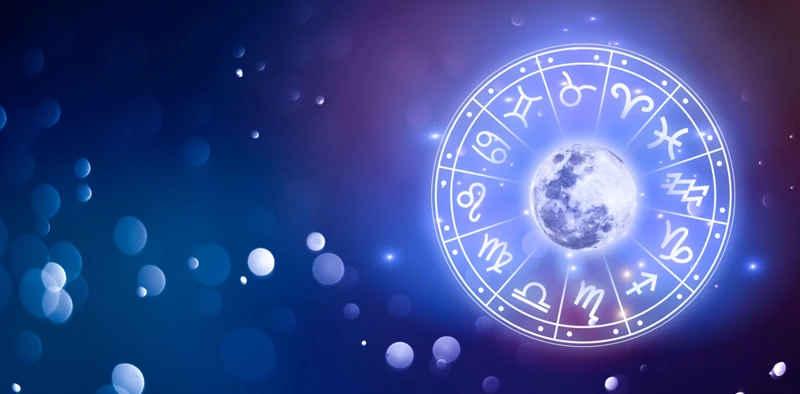
Zodiac sign compatibility refers to the analysis and assessment of the compatibility between two individuals based on their astrological signs. Astrology is the belief that the positions and movements of celestial bodies can influence human behavior and personality traits. Each zodiac sign is associated with specific characteristics and elements which can indicate the compatibility of individuals belonging to those signs. Compatibility is determined by assessing the similarities and differences between the personalities, strengths, and weaknesses of individuals based on their sun signs. However, it’s important to note that compatibility is not solely determined by sun signs, as there are other factors such as moon sign, rising sign, and planetary aspects that play a significant role in determining the overall compatibility between two individuals. By analyzing these various factors, astrologers can provide insights into the dynamics and potential challenges of a relationship. To fully understand the complexities of zodiac sign compatibility, it’s crucial to look beyond the sun sign alone and consider a comprehensive birth chart analysis. This provides a more in-depth understanding of an individual’s personality traits and how they interact with those of their partner. So, let’s explore the influence of elements, common misconceptions, and other factors that affect compatibility in order to find true and lasting connections. (Read more about Zodiac Compatibility Explained)
The Influence of Elements
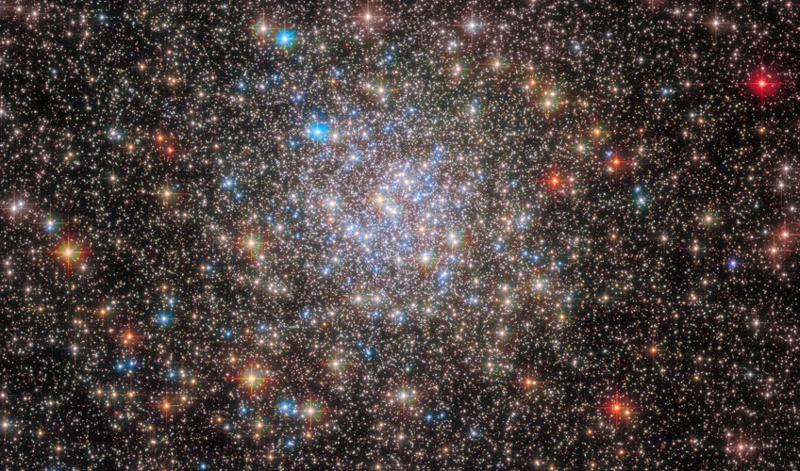
The elements play a significant role in zodiac sign compatibility. There are four elements: fire, earth, air, and water, and each zodiac sign is associated with one of these elements. Fire signs (Aries, Leo, and Sagittarius) are known for their passion, energy, and assertiveness. Earth signs (Taurus, Virgo, and Capricorn) are grounded, practical, and reliable. Air signs (Gemini, Libra, and Aquarius) are intellectual, social, and communicative. Water signs (Cancer, Scorpio, and Pisces) are emotional, intuitive, and empathetic. The compatibility between signs of the same element is generally harmonious, as they have similar approaches and preferences. Fire signs are compatible with other fire signs, as they share a zest for life and a desire for adventure. Earth signs are compatible with other earth signs, as they value stability and loyalty. Air signs are compatible with other air signs, as they prioritize intellectual stimulation and freedom. Water signs are compatible with other water signs, as they connect emotionally and intuitively. However, there can also be attraction and compatibility between signs of different elements. For example, fire and air signs can complement each other, with fire providing the passion and energy, while air brings intellectual stimulation and creativity. Earth and water signs can create a balanced and nurturing partnership, with earth providing stability and pragmatism, while water brings emotional depth and intuition. Understanding the influence of elements can give valuable insights into the dynamics of relationships, but it’s important to remember that individual personalities and compatibility factors go beyond the element alone. So, let’s unravel the common misconceptions surrounding zodiac sign compatibility and explore the other factors that affect true compatibility. (Read more about Zodiac Sign Compatibility Relations)
Common Misconceptions
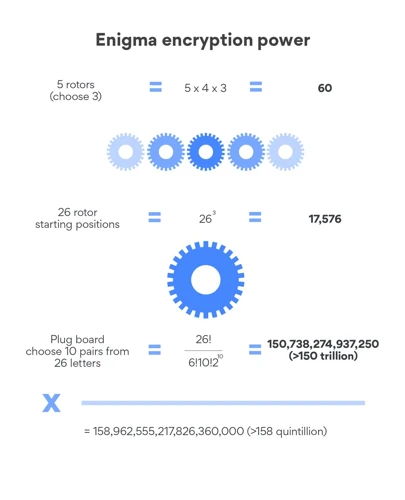
Common misconceptions about zodiac sign compatibility often lead to misunderstandings and false beliefs. One of the most prevalent misconceptions is the notion that astrological compatibility is deterministic, meaning that individuals with incompatible signs are destined to have a troubled or unsuccessful relationship. However, astrology should not be seen as a definitive predictor of relationship outcomes. Another misconception is that only sun signs matter in determining compatibility. While sun signs play a significant role, other factors such as moon sign, rising sign, and planetary aspects also contribute to the overall compatibility between individuals. Additionally, there is a misconception that incompatible signs cannot get along. In reality, even signs that are traditionally considered to be incompatible can have successful relationships through understanding, compromise, and growth. By shedding light on these misconceptions, it becomes clear that compatibility is a complex interplay of various factors that extend beyond the sun sign alone. Understanding these misconceptions allows individuals to approach relationships with an open and informed perspective. (Read more about personality traits and zodiac compatibility)
1. Astrological Compatibility is Deterministic
One common misconception about zodiac sign compatibility is the belief that it is deterministic. This means that people assume that if two individuals have compatible zodiac signs, their relationship is bound to be successful and harmonious, while incompatible signs are destined to have constant conflicts and challenges. However, this deterministic view overlooks the complexities of human relationships and individual experiences. While astrology can provide valuable insights into compatibility and relationship dynamics, it does not dictate the outcome of a relationship. It is important to remember that compatibility is not solely determined by astrology, but rather a combination of factors such as personal values, communication skills, shared interests, and emotional intelligence. Additionally, personal growth and effort put into the relationship by both individuals can greatly impact the compatibility and success of the partnership. It is essential to view astrology as a tool for self-reflection and understanding, rather than a concrete determinant of relationship outcomes. By recognizing the limitations of astrology and embracing the idea that compatibility is not fixed, individuals can approach relationships with an open mind and the willingness to grow together.
2. Only Sun Signs Matter
A common misconception in zodiac sign compatibility is the belief that only sun signs matter. While the sun sign is indeed a significant factor in astrology, it is not the sole determinant of compatibility. Sun signs represent the core essence and basic personality traits of an individual. They provide a general overview of a person’s character and can offer insights into their likes, dislikes, and overall compatibility with others. However, focusing solely on sun signs would oversimplify the complexities of human relationships.
To gain a more accurate and comprehensive understanding of compatibility, it’s important to consider other factors such as moon sign, rising sign, and planetary aspects. The moon sign represents a person’s emotional nature and can significantly influence their needs and reactions in relationships. The rising sign, also known as the ascendant, reflects an individual’s outward demeanor and how they present themselves to the world. It can impact the initial impression one has on others and can affect compatibility dynamics.
Planetary aspects, which examine the relationships between different planets in the birth chart, also play a crucial role in compatibility analysis. Positive aspects between key planets can foster harmony, while challenging aspects may indicate areas of potential conflict or growth.
By looking beyond sun signs and considering these additional factors, a more accurate and detailed picture of compatibility emerges. It’s important to recognize that every individual is unique, with a complex combination of characteristics that extend beyond their sun sign. Taking into account the influence of moon sign, rising sign, and planetary aspects provides a more comprehensive understanding of compatibility in relationships. So, while sun signs do matter, they are just one piece of the puzzle in the intricate world of zodiac sign compatibility.
3. Incompatible Signs Cannot Get Along
When it comes to zodiac sign compatibility, one common misconception is that incompatible signs cannot get along. While it is true that certain signs may have inherent differences in their personalities and approaches to life, it does not necessarily mean that they cannot form a harmonious relationship. In fact, relationships between incompatible signs can sometimes be the most dynamic and transformative. It all comes down to understanding and accepting each other’s differences, and finding ways to complement and balance each other. Here are a few reasons why incompatible signs can still get along and even thrive in a relationship:
1. Personal Growth: Incompatible signs can challenge each other to grow and evolve. Their contrasting viewpoints and approaches can lead to personal development and a broader perspective. They can learn from each other’s strengths and weaknesses, fostering growth on both an individual and relationship level.
2. Balance and Complementarity: In a relationship, opposites can attract and create a harmonious balance. Incompatible signs may have different strengths and weaknesses, and when they come together, they can fill in each other’s gaps. For example, a spontaneous and adventurous sign may bring excitement to the life of a more cautious and practical partner.
3. Relationship Compatibility Factors: While astrology provides valuable insights, it is crucial to consider other compatibility factors beyond zodiac signs. Factors such as shared values, communication styles, interests, and life goals play a significant role in determining relationship compatibility. Even if two signs are considered incompatible, they may align well in these other aspects, leading to a harmonious partnership.
It’s important to remember that no relationship is without challenges, and compatibility goes beyond zodiac signs alone. By embracing differences, fostering open communication, and prioritizing understanding, individuals can create and nurture strong connections, regardless of their zodiac sign compatibility. (Read more about Zodiac Sign Compatibility Relations)
Factors Affecting Compatibility
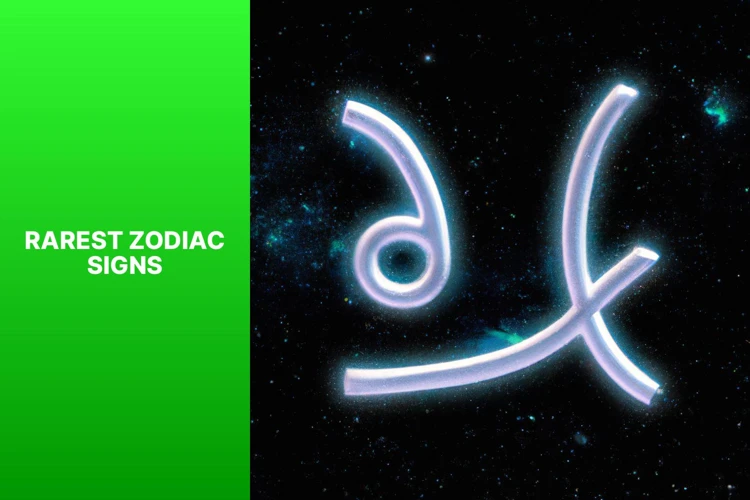
There are several factors that can affect compatibility between individuals in astrology. These factors go beyond just the sun sign and delve into a deeper understanding of a person’s birth chart. Here are a few key factors to consider:
- Sun Sign: The sun sign represents the core essence of an individual’s personality and is often the most commonly known astrological sign. It provides insights into their basic characteristics and general outlook on life.
- Moon Sign: The moon sign reflects an individual’s emotional nature and innermost feelings. It plays a significant role in how one expresses their emotions and seeks emotional connection in relationships.
- Rising Sign: Also known as the ascendant, the rising sign represents the way individuals present themselves to the world. It influences their appearance, demeanor, and first impressions, which can impact compatibility.
- Planetary Aspects: The aspects formed between different planets in a birth chart can indicate the dynamic and interaction between two individuals. Harmonious aspects can create compatibility, while challenging aspects may present obstacles.
Considering these factors provides a more comprehensive understanding of an individual’s personality and how they relate to others. By looking beyond just the sun sign, you can gain a deeper insight into the complexities of compatibility in astrology.
1. Sun Sign
The sun sign is the most well-known and commonly referred to aspect of an individual’s astrological chart. It represents the sign that the sun was in at the time of their birth and signifies their core essence and general characteristics. When it comes to zodiac sign compatibility, the sun sign plays a significant role in determining the initial attraction and overall compatibility between two individuals. However, it is important to remember that compatibility is not solely determined by the sun sign alone. While the sun sign does give a general idea of a person’s personality traits, it does not reflect the entirety of their being. It is essential to consider other factors such as the moon sign, rising sign, and planetary aspects for a more comprehensive analysis of compatibility. While the sun sign can provide valuable insights, relying solely on it can lead to oversimplification and inaccurate conclusions about compatibility. It is important to take a holistic approach and consider the interplay of various astrological factors to gain a deeper understanding of compatibility (Read more about personality traits and zodiac compatibility).
2. Moon Sign
The moon sign, also known as the “inner self,” is an essential factor to consider when assessing zodiac sign compatibility. While the sun sign represents our core essence, the moon sign reflects our emotions, instincts, and subconscious desires. It governs how we react emotionally and how we express our feelings. When two individuals’ moon signs align harmoniously, it can enhance emotional understanding and create a deeper connection. Conversely, conflicting moon signs can lead to misunderstandings and emotional tensions. To determine moon sign compatibility, it is necessary to analyze the elements and qualities of the moon signs involved. Water signs (Cancer, Scorpio, Pisces) are generally compatible with other water signs, as they share a deep emotional understanding. Earth signs (Taurus, Virgo, Capricorn) and air signs (Gemini, Libra, Aquarius) may have challenges understanding each other’s emotional needs but can provide a stabilizing influence. Fire signs (Aries, Leo, Sagittarius) and air signs can create a passionate and dynamic relationship, but they may also experience conflicts due to differences in emotional expression. By considering the moon sign along with the sun sign, a more accurate assessment of emotional compatibility can be made, thus providing a deeper understanding of the dynamics within a relationship. (Read more about Personality Traits and Zodiac Compatibility)
3. Rising Sign
Your rising sign, also known as your ascendant sign, is another crucial factor to consider when examining zodiac sign compatibility. The rising sign is determined by the exact time and location of your birth and represents the impression you give off to others and how you approach new situations. It is believed to be a reflection of your outward personality and the way you present yourself to the world.
The rising sign can significantly influence your compatibility with others, as it represents your social and interpersonal style. For example, if you have an outgoing and expressive rising sign like Aries, you may be attracted to partners who share your enthusiasm and confidence. On the other hand, if your rising sign is more reserved and introspective, like Virgo or Scorpio, you might find compatibility with individuals who appreciate your depth and thoughtfulness.
To better understand the influence of the rising sign, it’s essential to consider how it interacts with the sun sign of both individuals. While the sun sign represents your core essence, the rising sign provides insight into the initial impression you make and the way you navigate relationships. A harmonious combination of rising signs can create a strong initial attraction and compatibility, while conflicting rising signs may lead to challenges in communication and understanding.
It’s important to note that compatibility is not solely determined by the rising sign, and other factors like the moon sign, sun sign, and planetary aspects should also be considered. The rising sign adds an additional layer of complexity and insight into the dynamics of a relationship.
By considering all these different astrological factors, including the rising sign, one can gain a more comprehensive understanding of compatibility and the potential challenges and strengths within a relationship. Consulting with an astrologer or using online resources can help individuals analyze their rising signs and explore their compatibility with others. So, don’t overlook the significance of the rising sign, as it can provide valuable insights into interpersonal dynamics and compatibility.
4. Planetary Aspects
4. Planetary Aspects:
When assessing zodiac sign compatibility, one crucial factor to consider is the planetary aspects between the individuals’ birth charts. Planetary aspects refer to the angles and relationships formed between the planets at the time of birth. These aspects provide insights into how the different planetary energies interact and influence one another.
There are several types of planetary aspects, each with its own significance in compatibility analysis. Here are some of the key aspects to take into account:
1. Conjunction: A conjunction occurs when two planets are close together in the same zodiac sign. This aspect signifies a blending and intensification of energies. Depending on the planets involved, it can indicate a strong connection and compatibility between individuals or potential challenges if the energies clash.
2. Trine: A trine forms when two planets are approximately 120 degrees apart. This aspect represents harmony, ease, and support between the planets involved. In terms of compatibility, a trine aspect suggests a natural understanding and compatibility between individuals.
3. Square: A square aspect is formed when two planets are approximately 90 degrees apart. This aspect signifies tension, conflict, and challenges between the energies of the planets involved. In terms of compatibility, a square aspect may indicate areas of friction and differences that need to be addressed and worked through.
4. Opposition: An opposition occurs when two planets are opposite each other in the birth chart, approximately 180 degrees apart. This aspect represents a polarity and can indicate a strong attraction between individuals with complementary qualities. However, it can also bring about challenges and the need for balance in the relationship.
Analyzing the planetary aspects in a birth chart provides a deeper understanding of the dynamics between individuals and the potential strengths and challenges they may face in a relationship. It allows astrologers to identify areas of compatibility and areas that may require compromise and understanding.
Remember that planetary aspects are just one piece of the puzzle in compatibility analysis. Considering the overall birth chart and other factors, such as the sun, moon, and rising signs, is crucial for a comprehensive understanding of compatibility in relationships.
Finding True Compatibility
Finding true compatibility in relationships involves going beyond surface-level analysis and understanding the deeper aspects of each individual. While zodiac sign compatibility provides a foundation, it is essential to dig deeper for a more comprehensive understanding. One effective approach is through a comprehensive birth chart analysis, which takes into account not only the sun sign but also the moon sign, rising sign, and planetary aspects. These factors provide valuable insights into an individual’s personality traits and how they interact with those of their partner. Additionally, understanding personal growth and communication styles is crucial for building a strong relationship. This involves recognizing areas where both individuals can support each other’s personal development and effectively communicate their needs and desires. Lastly, compatibility goes beyond astrology and can be influenced by various external factors such as shared values, life goals, and emotional intelligence. By considering all these factors, individuals can find true compatibility that extends beyond superficial compatibility assessments. (Read more about Zodiac Sign Compatibility Relations)
1. Comprehensive Birth Chart Analysis
A comprehensive birth chart analysis is a crucial step in understanding zodiac sign compatibility beyond just the sun sign. The birth chart, also known as a natal chart, is a snapshot of the positions of celestial bodies at the moment of an individual’s birth. It provides a detailed picture of an individual’s personality, strengths, weaknesses, and overall life path. By analyzing the birth chart, astrologers can explore the energies of the sun, moon, and rising signs, as well as the positions of various planets in different houses and the aspects they form with each other. Each of these elements adds layers of complexity to an individual’s personality and influences how they interact with others. For example, the moon sign reflects a person’s emotional nature and how they express their feelings, while the rising sign indicates the initial impression others may have of them. Planetary aspects, such as the relationship between the sun and moon or the connections between different planets, reveal additional dynamics and potential areas of strength or challenge in a relationship. A comprehensive birth chart analysis allows for a more nuanced understanding of an individual’s unique qualities and compatibility with others. It helps identify areas of compatibility, as well as areas where conflicts may arise. By taking into consideration all these factors, astrologers can offer valuable insights and guidance for navigating relationships with a deeper level of understanding and compatibility. (Read more about Zodiac Sign Compatibility Relations)
2. Understanding Personal Growth and Communication
Understanding personal growth and communication is a crucial aspect of achieving true compatibility in a relationship. While astrology provides valuable insights into personality traits and compatibility factors, personal growth and effective communication are essential for a successful and harmonious connection. Personal growth involves each individual’s continuous self-improvement and development. It is important to recognize that people change over time, and their personalities evolve accordingly. By understanding and supporting each other’s personal growth journeys, partners can navigate the challenges and growth spurts that may arise throughout the relationship. Honesty, openness, and the willingness to adapt and learn from each other are key components of personal growth within a partnership.
Communication plays a vital role in any relationship. Clear and effective communication allows partners to express their needs, wants, and concerns openly and honestly. By developing strong communication skills, couples can foster understanding, resolve conflicts, and build a stronger bond. It’s essential to actively listen to each other, validate feelings, and express empathy and understanding. Effective communication also involves finding a balance between assertiveness and sensitivity, ensuring that both partners feel heard and valued.
To truly understand personal growth and communication in the context of compatibility, it’s important to consider both individual and shared goals, values, and aspirations. Couples should encourage each other’s personal development and support one another’s dreams and ambitions. By nurturing personal growth and maintaining open lines of communication, couples can foster a deeper connection and create a thriving relationship. So, alongside astrological compatibility, understanding personal growth and communication is an integral part of building and sustaining a fulfilling and long-lasting partnership.
3. Compatibility Factors Beyond Astrology
When it comes to compatibility in relationships, there are factors beyond astrology that play a significant role. While astrology can provide insights into personality traits and compatibility based on astrological signs, it is not the sole determining factor. Personal growth and communication are two essential compatibility factors that go beyond astrology.
Personal growth involves the individual’s willingness to continuously improve themselves, work on their emotional intelligence, and resolve any personal issues or traumas. When both individuals in a relationship are committed to personal growth, they create a foundation for a healthy and evolving partnership. This includes being open to feedback, acknowledging areas for improvement, and actively working on self-awareness and personal development.
Communication is another crucial factor in compatibility. Effective communication involves active listening, empathy, and the ability to express thoughts and feelings in a constructive manner. It’s important to have open and honest conversations, address issues or conflicts, and find mutually beneficial solutions. Healthy communication fosters trust, understanding, and deeper emotional connection in a relationship.
Beyond astrology, compatibility is also influenced by shared values, goals, and interests. Having aligned values and aspirations helps create a sense of shared purpose and enhances compatibility. Common interests and hobbies can also strengthen the bond between partners and provide opportunities for shared experiences and quality time together.
Additionally, compatibility is shaped by external factors such as timing and life circumstances. Timing plays a crucial role in relationships, as individuals may go through different life stages or have varying priorities at different times. It’s important for both partners to be at a similar stage in life and have compatible long-term goals to ensure a harmonious relationship.
While astrology offers valuable insights into compatibility, it is essential to consider compatibility factors beyond astrology. Personal growth, effective communication, shared values and interests, timing, and life circumstances all play a significant role in determining the overall compatibility between two individuals. By acknowledging and nurturing these compatibility factors, couples can build strong and fulfilling relationships that go beyond the realms of astrology.
Conclusion
In conclusion, it’s important to approach zodiac sign compatibility with an open mind and a broader perspective. While sun signs provide a general understanding of compatibility, it is not the sole determining factor. Elements such as the moon sign, rising sign, and planetary aspects also play crucial roles in assessing compatibility. It is essential to remember that astrology is not deterministic and should not be used as a rigid framework for judging relationships. Instead, it can serve as a tool for self-reflection, understanding, and personal growth within relationships. True compatibility goes beyond astrology and involves factors such as shared values, communication, emotional intelligence, and personal growth. By embracing a comprehensive approach and considering all aspects of compatibility, we can navigate our relationships with a deeper understanding and an open-hearted approach. So, let’s appreciate the insights astrology provides while also recognizing that true compatibility is a complex combination of various factors both within and beyond astrological influences.
Frequently Asked Questions
1. Can two people with incompatible zodiac signs have a successful relationship?
A successful relationship is not solely determined by zodiac sign compatibility. While compatibility can influence the dynamics of a relationship, factors such as communication, mutual respect, and personal growth play significant roles in creating a strong bond between individuals.
2. Can zodiac sign compatibility predict the longevity of a relationship?
Zodiac sign compatibility can provide insights into the potential challenges and strengths of a relationship, but it cannot predict the exact longevity of a relationship. Longevity depends on a multitude of factors, including the efforts and commitment of both individuals involved.
3. Are sun signs the most important factor in determining compatibility?
While sun signs do play a role in determining compatibility, they are not the only factor to consider. Factors such as moon sign, rising sign, and planetary aspects also contribute to the overall compatibility between individuals.
4. Can a relationship between two people with the same zodiac sign work?
A relationship between two people with the same zodiac sign can work, but it does require effort and understanding. While there may be similarities in their personalities, it’s important for both individuals to embrace their unique traits and communicate effectively to maintain a healthy relationship.
5. Can two people with compatible zodiac signs have a challenging relationship?
Yes, two people with compatible zodiac signs can still face challenges in their relationship. Compatibility does not guarantee a smooth journey as individuals have their distinct personalities and life experiences that can influence their interactions.
6. What is the role of the moon sign in compatibility?
The moon sign represents an individual’s emotional nature, instincts, and innermost feelings. It plays a crucial role in understanding an individual’s emotional needs and how they express affection, which directly impacts the emotional compatibility between two individuals.
7. How does rising sign affect compatibility?
The rising sign, also known as the ascendant, represents a person’s outward demeanor and how they appear to others. It can influence compatibility by affecting the initial attraction and chemistry between individuals, as well as how they present themselves in a relationship.
8. What are planetary aspects and how do they impact compatibility?
Planetary aspects refer to the angles or relationships formed between different planets in a birth chart. Positive aspects indicate harmony and compatibility, while challenging aspects can create tension and conflicts in a relationship.
9. Can compatibility be improved with effort and understanding?
Absolutely! While compatibility provides a foundation, relationships require effort and understanding from both parties. By practicing effective communication, empathy, and mutual respect, individuals can work on their relationship and improve compatibility over time.
10. Should astrology be the sole basis for choosing a partner?
Astrology should not be the sole basis for choosing a partner. While it can offer insights and guidance, it’s important to consider other factors such as shared values, interests, and emotional compatibility when making decisions about a potential partner.

